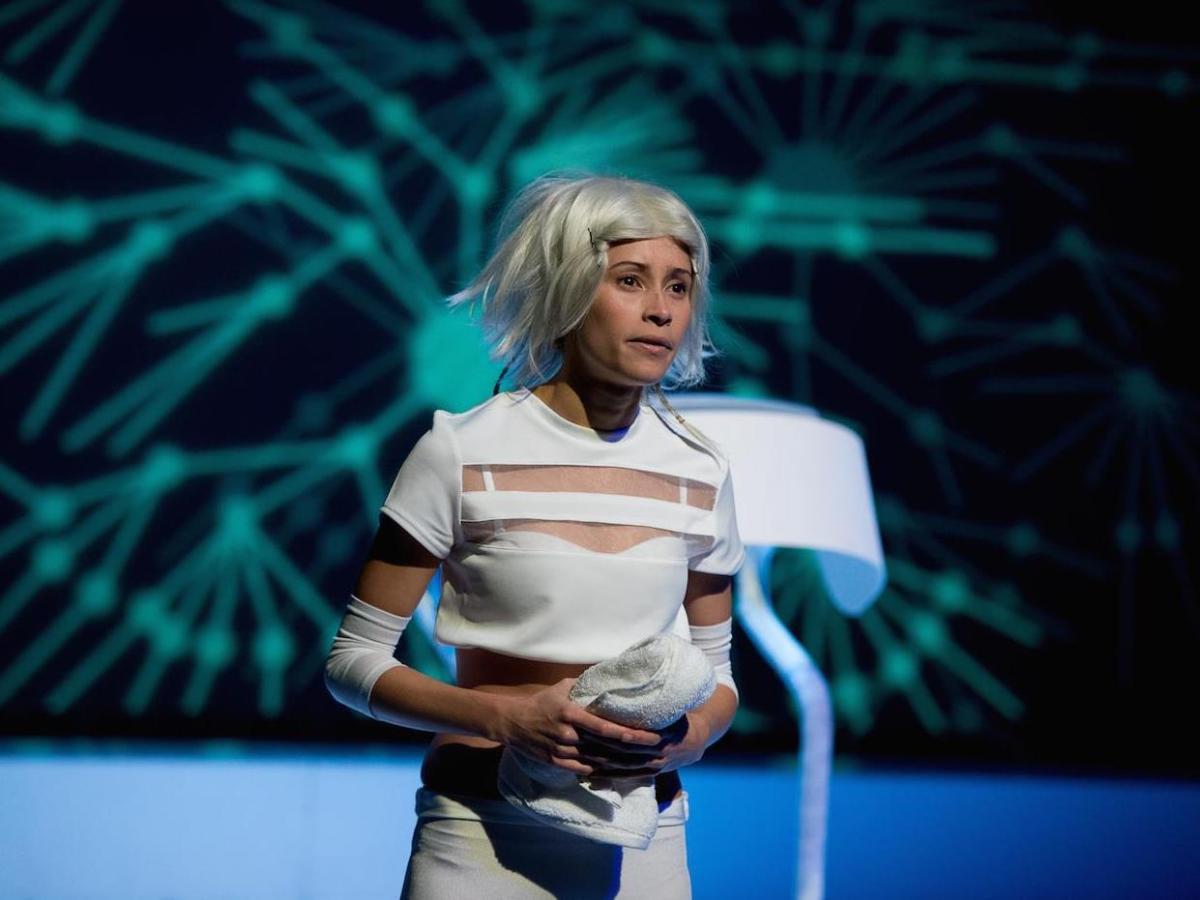Jacinta Yelland as Rydra. Image by Lachlan Woods.
The socially conservative past is met by a radical future in Elbow Room’s production of The Motion of Light in Water. The science fiction play explores the fluidity of identity, sexuality and desire in a world where queerness is championed over the heterosexual, monogamous norm. Labels are replaced with unbridled human emotion.
Inspired by the poet Marilyn Hacker, and the autobiography of the same name by author Samuel R. Delany, The Motion of Light in Water narrates two parallel stories. The first is set in the early 1960s and follows ‘Chip’ Delany (Ray Chong Nee) as he writes what will become one of his seminal science fiction works, Babel-17. He is married to Marilyn and engages in promiscuous sex with men, an understanding they both seem to share.
The second story is of Babel-17, set in 2114, where metallic lycra is in vogue. The chief protagonist is the incredibly bright Rydra (Jacinta Yelland) who attempts to crack a linguistic code in order to save humanity from an alien invasion.
From the beginning of the play, themes of sexual liberation are engaged, and identity is not rigidly defined. Two ambiguous silhouettes stand facing a large red light propped up against the back of the small stage. While a voice-over introduces the story, the audience are unaware of the two characters’ gender or sexual identities – and this is the point. The production presents a society where humans and the relationships they form with others aren’t bound by a strict on- man and one-woman guideline.
As the two central characters in the 1960s storyline, Chip and Marilyn represent an idyllic sexual utopia. They enter a polyamorous relationship with a man Chip meets on the street, and for the most part it seems to work. During a scene that takes place in a gay bathhouse, Chip marvels at his surroundings; he wonders how people can choose to live a life of monogamy when sexuality and identity are so readily able to be explored.
Chong Nee does a wonderful job playing Chip, as well as Brass from the Babel-17 storyline. He is able to flit between characters at ease and keeps the audience engaged with the charming demeanour he adopts. Yelland also stands out as Rydra, commanding everyone’s attention in the theatre with her energetic and lively performance.
The production smoothly utilises the small theatre space, using light and projection to reveal key information during the play. The intimate nature of the venue also allows the soundtrack to truly shine, from the recurring melodic, sci-fi music to the sound effects involved in the action.
The play is a fun, camp adventure that doesn’t take itself too seriously. As a result the more serious social commentary on sexuality and identity is slightly trivialised, shrouded under the dynamic set and science fiction narrative. It may not provoke any meaningful dialogue on these issues, but as a form of entertainment it’s certainly worth the ticket.
Rating: 3 ½ out of 5 starsThe Motion of Light in Water
Director: Marcel Dorney
Cast: Paul Blenheim, Ray Chong Nee, Tom Dent, Laura Maitland, Emily Tomlins and Jacinta Yelland
Theatre Works, Acland St, St Kilda
www.theatreworks.org.au
17 – 27 July






